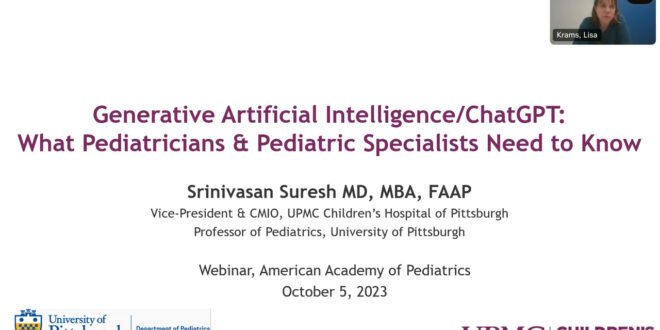The Role of Artificial Intelligence in Modern Medicine
Artificial intelligence (AI) is increasingly becoming a significant player in the field of medicine, particularly in areas like paediatric gastroenterology, hepatology, and nutrition. According to Professor James Renner, the Dean of Clinical Sciences at Babcock University, AI has the potential to enhance productivity, minimize human error, and improve the scalability of medical expertise and personalized care. However, he also highlighted that if AI systems fail, it could lead to delayed human intervention with potentially severe consequences.
Professor Renner emphasized several risks associated with the use of AI in medical practice. These include algorithmic bias, over-reliance on AI for clinical decisions, data privacy breaches due to the use of patient data, and legal ambiguities regarding accountability for AI-related errors. He stressed that these issues are critical and must be addressed to ensure safe and effective implementation of AI in healthcare.
During the 11th annual general and scientific conference of the Nigerian Association of Paediatric Gastroenterology, Hepatology, and Nutrition (NAPGHAN), held in Ibadan, Professor Renner discussed the theme “Artificial Intelligence Revolution in Paediatric Gastroenterology, Hepatology, and Nutrition.” He pointed out that diagnostic errors resulting from biased algorithms or limited training data are among the key concerns that need attention. He advocated for keeping clinicians actively involved in the process, emphasizing that AI should assist rather than replace human expertise.
He further stated that it is essential to validate AI tools specifically for pediatric populations, train clinicians to effectively use these technologies, and establish fair, ethical, and legal frameworks. He referenced Moffitt’s Law, which suggests that predictions about future developments may not always hold true, urging careful planning and thoughtful integration of AI into healthcare systems.
Professor Renner also noted that the rapid advancement of AI in medicine presents both opportunities and responsibilities. The extent to which stakeholders engage with AI will significantly influence the progress of Nigeria’s health sector. He argued that AI can help combine knowledge, compassion, and excellence, enhancing the ability to heal, prevent diseases, and provide more precise and caring treatment to children. However, he firmly believed that AI cannot replace the human touch in medicine.
He concluded by stating that while AI will not replace doctors, those who effectively utilize AI may eventually surpass those who do not. His call was for AI to become a partner in purpose rather than a threat to humanity, urging a move guided by ethics and vision.
Transformative Potential of AI in Healthcare
Chief Medical Director of the University College Hospital, Professor Jesse Otegbayo, who opened the conference, highlighted that the global health sector is undergoing a paradigm shift, with AI playing a transformative role in how diseases are diagnosed, treated, managed, and prevented. Represented by Professor Olubukola Adesina, he emphasized that AI should serve as a facilitator rather than a hindrance, advocating for its adoption in a manner that is safe, useful, and tailored to patients’ needs.
NAPGHAN’s president, Prof. Felix Akinbami, reiterated the organization’s focus on addressing major health challenges related to the gastrointestinal system and nutrition among Nigerian children. He underscored the importance of good nutrition in managing pediatric diseases, especially chronic conditions like liver disease. Akinbami noted that Nigeria is beginning to see cases of inflammatory bowel disease (IBD), which was previously considered uncommon in the pediatric population. He called for increased vigilance to improve early diagnosis and refine management strategies for affected children.
Oyo State Commissioner for Health, Dr Oluwaserimi Ajetunmobi, represented by Dr Akinfemi Akinyode, announced that the state is committed to improving the health of the pediatric population. Plans are underway to elevate the status of Oni and Son’s Children’s Hospital to run a paediatric residency programme. Similarly, Ogun State Health Commissioner, Dr Tomi Coker, represented by Dr Esther Ogunsilu, urged for stronger collaboration between paediatricians and nutritionists to identify and address causes of nutritional deficiencies in children, aiming to provide effective solutions for their growth and development.
The discussions at the conference highlight the growing recognition of AI’s potential in transforming healthcare, while also underscoring the need for careful integration, ethical considerations, and continued emphasis on the human element in medical practice.
 Info Malang Raya Its All About World News
Info Malang Raya Its All About World News




